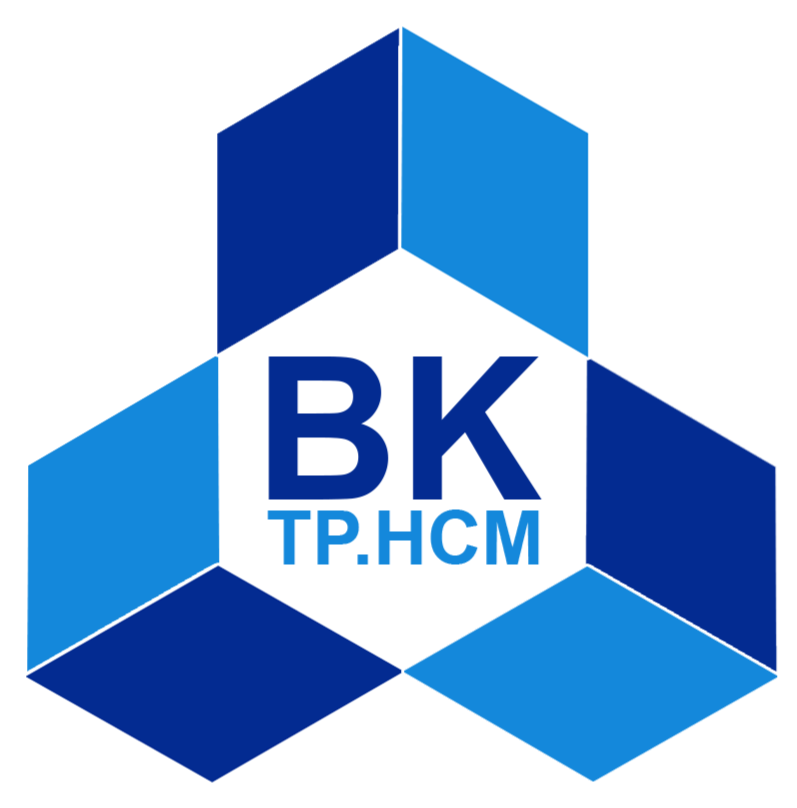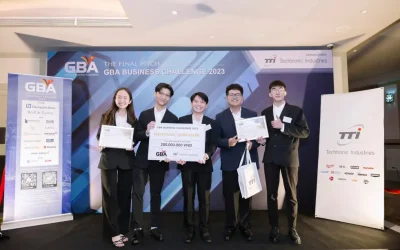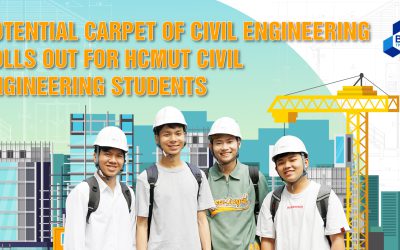How I won a Ph.D. scholarship from the University of Adelaide
Starting from a small village in Lam Dong, Le Anh Linh, former HCMUT student, won a full scholarship at the University of Adelaide (Australia). On September 11, he graduated with an excellence award.
Linh received a Beacon of Enlightenment Scholarship from Adelaide University for international students worth AUD 215,000 for 3 years including tuition, living expenses and insurance for the whole member of the family. In addition, he also received a Ph.D. scholarship of AUN / SEED-Net Thailand – Japan, a scholarship at Ghent University (Belgium) and the National University of Singapore (Singapore). With his excellent graduation thesis and published scientific researches, Linh was proudly to be chosen as the Mace Bearer and spoke during his graduation ceremony at the University of Adelaide. From personal experience, Linh wants to share his experience of gaining master’s and doctoral scholarships in Australia.

Le Anh Linh was proud to be chosen as the Mace Bearer for the graduation ceremony
Be well-prepared as soon as possible
When I became a student at the Ho Chi Minh City University of Technology (HCMUT), I spent most of my time studying with the hope of becoming an engineer upon graduation. But by the third year, when I saw a video about travel and culture in some advanced countries, everything changed completely. I started to look for information to go abroad to have those experiences.
Due to economic conditions, I decided to go abroad only if I could find a full scholarship (tuition and living expenses) regardless of studying a master’s degree or doctorate. From my friends, I know the requirements for studying abroad. Important things such as English language proficiency, a good transcript or research experience, all need to be prepared from the start. If all is well done at the same time, it is the best, if not (like me), it needs investment, time management and effort to achieve these conditions when applying for scholarships. I see many people have to quit their jobs to learn English or prepare applications. This is sometimes necessary depending on each person’s situation. But in my opinion, it should be avoided and completely avoidable if there is preparation in advance.
Similarly, studying masters or doctorates abroad (from engineering, science to economics) is mainly doing research, therefore, preparing the skills for scientific research (self-research, self-study, critical thinking) is necessary. Moreover, if you change your mind not to study abroad, these preparations are still useful for any job in Vietnam. My first advice is to prepare everything you need, as soon as possible, surely time will not be wasted anywhere.

Le Anh Linh was at the graduation ceremony
English is indispensable
English not only opens up for opportunities to study abroad but also provides many other chances in both career and daily life. I find that my technical classmates have little interest in English. Personally, when I intended to study abroad in the third year, I just realized the importance of English and started learning. I think I should learn English in the same way as a child learn to speak: Learn to listen and pronounce each word correctly first, then build vocabulary and then mind the grammar.
I used to be a victim of learning unnecessary grammar at secondary and high school because I didn’t understand and got confused by a large number of grammatical structures and they were just for the homework, so English had become my fear. My experience with English has shown that the more I use it, the more important to pronounce the word correctly and to make it fun to learn. Thanks to this “secret”, the writing score of my TOELF iBT exam was 29 and 30/30 in 2 attempts, while many of you are afraid of this section.
You all still wonder whether to study IELTS or TOELF iBT, I think both are good and accepted by most universities. TOELF iBT’s skills, especially listening, reading and writing, are very close to what students have to do while studying abroad. In general, European and Australian schools are still preferred IELTS, whereas the US prefers TOELF iBT.

Le Anh Linh gave a speech at the ceremony
Finding the instructors
More than the rank of the school or the amount of money received from a scholarship, I think choosing an instructor is the most important when doing a PhD, especially those who want to pursue an academic career. Professor Nguyen Van Tuan (Garvan Institute of Medical Research, Australia) also said that the instructor will have a great influence on a doctor’s career for 5-10 years after graduation. After graduation, students may no longer work with instructors, but the imprint of the research direction, skills and especially their working style will follow and partly determine the success of the student later.
Depending on each person’s goals, the criteria for selecting the instructor are also different. People often only pay attention to statistical indicators such as the number of citations or the number of scientific articles to then choose an instructor. However, these indicators do not always reflect the reality and there are many other more important factors to consider such as the number of PhDs they instruct, the subsequent development of these people, the number of the scientific funding they receive, what stage of development are they at (starting, rising or on the other side of their career).
All this information can be found online and should be considered when making a decision. You can even read their scientific publications to see the quality of science in it and whether you like the research they are doing. Once the instructor is selected (and the instructor chooses us), the application for any type of scholarship, and the process will become easier. Scholarship information and requirements are often clearly publicized on the website.

Le Anh Linh took pictures with the school academics at the graduation ceremony
Scientific research preparation
Experience in doing research is usually assessed through scientific publications. In fast-growing industries such as information technology and computer science, a scientific paper at a conference is important. In contrast, in most other disciplines, articles in a scientific journal (peer-reviewed journals) are the top criteria for evaluating candidates. If you are the author of 1 or 2 good quality publications, you can get a good scholarship.
Knowing this, I participated in scientific research in my final year at HCMUT. Thanks to that research experience and my English preparation, I received a 5-year master and doctorate scholarship at Nanyang University (Singapore) but I refused in order to look for better opportunities.
I ended up choosing to stay in Ho Chi Minh City and worked at Institute for Computational Sciences after graduating from HCMUT. So instead of spending money on a master’s degree, I can just do research to improve my profile and still have a pretty good income compared to my friends when I graduated. After a year and a half, when there were a few publications in conferences and scientific journals, getting a scholarship became a lot easier.
I received a Ph.D. scholarship at the University of Adelaide without having to study through a master’s degree. This is common in Australia, but they usually only accept students who study there or other advanced countries. Experience in doing research is the biggest difference in my profile.
A few other notes
Perhaps everyone sees “education is the most profitable investment”, but how to nurture this investment to make it profitable, each person will have their own way. I feel that young people should find ways to go abroad to experience and “invest” when given the opportunity.
From simple things like the arrangement of paths for people with disabilities, stairs, bus seats to bigger things like city planning, social life, there are many things we can learn. These things, regardless of whether I stay or return to Vietnam, are the lessons to help me become a better version of myself that no one else can teach me.
Being a master or doctor, especially choosing to pursue an academic career, is a very arduous journey and relies heavily on yourself. Therefore, you should try to find a full scholarship as a “salary” for your work. And is that difficult? In my opinion, it is entirely feasible.
With a bit of luck, I went from a village student to Thang Long High School (Da Lat), Ho Chi Minh City University of Technology (Bach Khoa), Institute for Computational Sciences and then to the University of Adelaide. I think who can do it will do it, and there are definitely many people who have done and will do it better than me. The only thing I want to emphasize is that sometimes I have to create luck for myself, by rolling up my hands and starting with “preparation”.
Le Anh Linh



